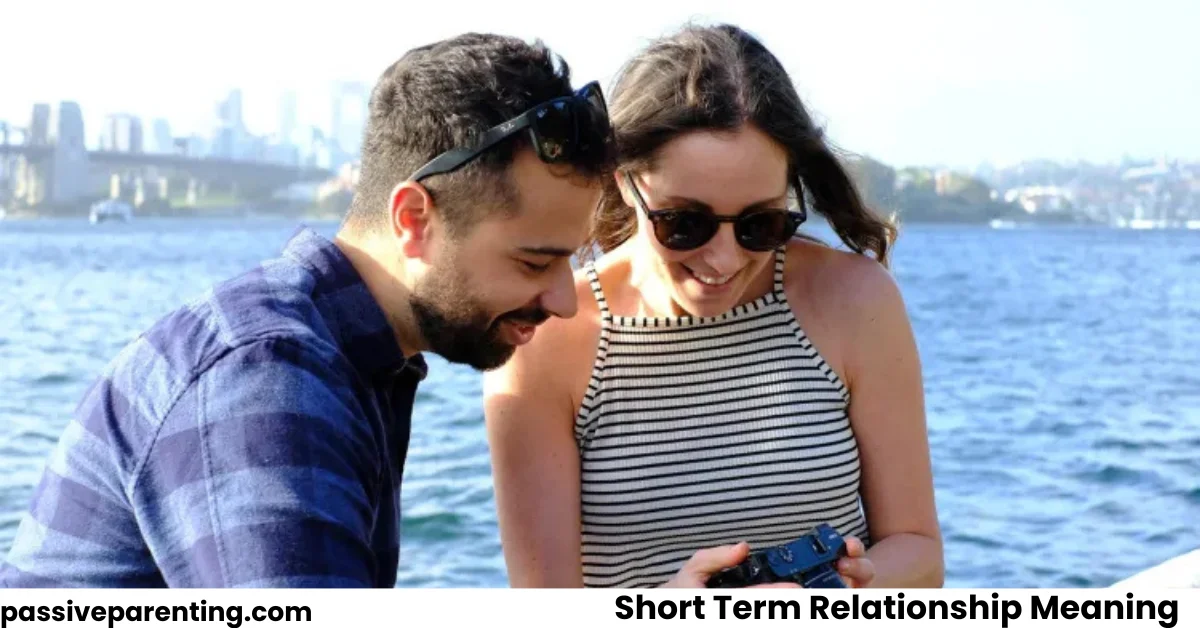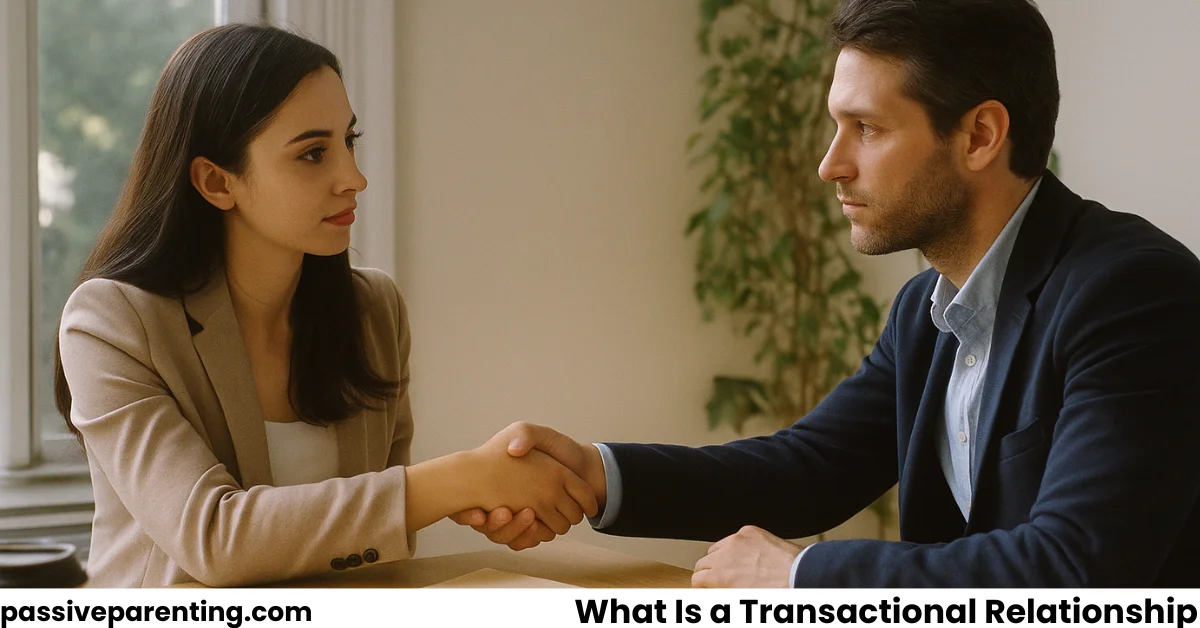In today’s fast-paced world, relationships come in many forms, some meant to last a lifetime, others designed to be short, spontaneous, and full of self-discovery. But what exactly is the short term relationship meaning?
Many people find themselves in connections that feel real but don’t necessarily have long-term intentions. These relationships often focus on shared experiences, emotional exploration, and living in the moment. Understanding what short-term relationships are and what they aren’t. helps you approach them with clarity and emotional awareness.
In this guide, we’ll explore what defines a short-term relationship, how long it typically lasts, why people choose them, and how they can shape your understanding of love and compatibility.
Short Term Relationship Meaning
A short-term relationship refers to a romantic connection that typically lasts from a few weeks to several months. The key characteristic is that it doesn’t carry long-term intentions such as marriage, lifelong partnership, or future planning.
The short term relationship meaning isn’t limited to casual dating or fleeting flings. Many of these relationships involve genuine affection, connection, and shared experiences. The difference lies in intent, both individuals usually understand that the relationship has an expiration point, whether it’s due to life goals, timing, or personal priorities.
Short-term relationships can be exciting, passionate, and emotionally fulfilling, even if they don’t last. They often help people learn about themselves, understand what they want from future relationships, and enjoy companionship without long-term pressure.
How Long Does a Short-Term Relationship Last?
There’s no official rule about how long a short-term relationship should last, but most fall within the three-month to one-year range. The duration depends on mutual understanding, emotional connection, and personal circumstances.
Some short-term relationships end naturally when one or both people realize they’re not looking for the same future. Others may fizzle out once the initial excitement fades. Unlike long-term relationships, these are less about longevity and more about shared moments and growth.
The meaning of a short-term relationship isn’t found in its length but in its purpose, providing experience, enjoyment, and personal insight without a long-term commitment.
Key Characteristics of Short-Term Relationships
Every relationship is unique, but short-term ones share certain common traits that make them distinct from long-term commitments.
Short-term relationships are often driven by attraction and curiosity rather than long-term goals. They focus on living in the present rather than building a shared future. Emotional connection may exist, but it tends to remain light and flexible.
There’s also a sense of freedom and spontaneity. Couples in short-term relationships often enjoy each other’s company without strict expectations or long-term planning. These connections may include travel, adventure, or exploration of mutual interests.
Another defining feature is honesty about intentions. People in short-term relationships often communicate openly that they’re not looking for lifelong commitment. This clarity helps maintain emotional boundaries and prevents misunderstandings.
Why People Choose Short-Term Relationships
There are many reasons why someone might seek or embrace a short-term relationship.
Some people simply enjoy the thrill of new connections, the excitement, passion, and discovery that come with meeting someone new. For others, it’s about personal growth or recovering from a previous long-term relationship. After heartbreak, a short-term connection can help rebuild confidence and restore a sense of joy in companionship.
Others may choose this type of relationship because they’re focused on career, education, or self-improvement and don’t have time or energy for long-term commitment. For some, it’s a lifestyle preference, enjoying relationships that are meaningful but not lifelong.
The short term relationship meaning changes slightly for everyone, but the central theme remains: living in the moment and valuing connection without long-term attachment.
Emotional Dynamics in Short-Term Relationships
Despite their limited duration, short-term relationships can still be emotionally rich. The feelings that develop are real, attraction, affection, and even love can exist, but they’re often more intense at the beginning and fade faster over time.
These relationships often follow a unique emotional rhythm. The first phase is filled with excitement and discovery. Both partners feel drawn to each other’s energy, enjoying the novelty of the experience. As time goes on, one or both may realize that their life paths or goals don’t align, leading to a gentle or mutual separation.
That doesn’t mean short-term relationships lack value. Many people find that these connections teach important lessons about communication, compatibility, and self-awareness. They reveal what truly matters in love and what doesn’t.
Short-Term vs Long-Term Relationships
Understanding how a short-term relationship differs from a long-term one can help clarify your own needs and goals.
| Aspect | Short-Term Relationship | Long-Term Relationship |
|---|---|---|
| Duration | Weeks to months | Years or lifelong |
| Focus | Present enjoyment | Future planning |
| Commitment Level | Low to moderate | Deep and ongoing |
| Emotional Connection | Strong but fleeting | Deep and stable |
| Goal | Experience and growth | Partnership and stability |
While long-term relationships prioritize stability, short-term ones often emphasize discovery and fun. Neither is inherently better, it depends on your emotional readiness and life goals.
Some people move naturally from short-term experiences to seeking long-term love, while others appreciate the freedom and simplicity of shorter connections.
While short-term relationships focus on living in the moment, long-term ones emphasize stability and shared goals. If you’d like to understand the deeper emotional and practical aspects of lasting partnerships, check out our detailed guide on Long Term Relationship Meaning.
Advantages of Short-Term Relationships
Short-term relationships can be deeply rewarding when approached with honesty and awareness. They often allow people to explore their emotional needs and learn about compatibility without the weight of long-term expectations.
They’re also opportunities for personal growth. You might discover new interests, build confidence, or learn communication skills that prepare you for future relationships. Many people appreciate how short-term relationships allow them to stay independent while still enjoying intimacy and connection.
Another advantage is that they encourage authenticity. With less pressure to “make it last,” people tend to be more honest about who they are, leading to genuine, if brief, connections.
Disadvantages of Short-Term Relationships
Of course, short-term relationships aren’t without drawbacks. One major downside is that emotional expectations can differ. Sometimes, one partner develops stronger feelings while the other remains detached, leading to hurt or confusion.
The temporary nature can also make it difficult to build deep trust or emotional intimacy. When both people know the relationship has a limited future, they may hold back emotionally, preventing genuine closeness.
Finally, the end of a short-term relationship can still bring sadness, especially if the connection was intense. Accepting its impermanence is key to handling it gracefully.
Can a Short-Term Relationship Turn Into a Long-Term One?
Yes, sometimes. While most short-term relationships begin with limited expectations, some evolve naturally into something more lasting. When two people discover emotional compatibility and shared goals, what started as casual can become deeply meaningful.
The shift usually happens when communication deepens, mutual respect grows, and both partners begin envisioning a shared future. However, for this transformation to succeed, both people must be open and ready for commitment.
The short term relationship meaning may begin with simplicity, but human emotions are complex — and sometimes, love changes the plan.
How to Approach a Short-Term Relationship Mindfully
Entering a short-term relationship with self-awareness and honesty makes all the difference. If you know you’re not looking for a lifelong commitment, communicate that clearly from the start. Transparency prevents misunderstandings and helps both partners align expectations.
Focus on mutual respect, emotional honesty, and consent. Enjoy the connection for what it is, an opportunity to share experiences, learn, and grow. When approached with kindness, short-term relationships can be fulfilling and meaningful, even without permanence.
Avoid overanalyzing every interaction or expecting it to evolve into something long-term. By staying present, you’ll appreciate the moments without feeling pressured by the future.
When to Avoid Short-Term Relationships
There are times when a short-term relationship may not be the right choice. If you’re healing from a recent breakup or still emotionally attached to someone else, entering a temporary relationship can delay recovery or cause confusion.
Similarly, if you’re someone who quickly develops deep emotional attachments, short-term relationships can be painful. It’s important to understand your emotional patterns before deciding whether a casual relationship aligns with your needs.
If your heart seeks long-term commitment and stability, it’s best to be patient and wait for someone with similar goals.
Lessons Learned From Short-Term Relationships
Even though they may be brief, short-term relationships often teach powerful lessons about love, boundaries, and self-awareness. They can help you understand what type of partner you connect with best, what values matter most to you, and how you handle emotional attachment.
Some people discover that they prefer longer commitments after experiencing the limitations of short-term connections. Others realize they value independence and personal growth more than relationship longevity.
Either way, these relationships serve a purpose. They help shape your emotional intelligence and give you confidence to pursue love in a way that truly aligns with who you are.
Conclusion
In the end, the short term relationship meaning is about embracing the present, enjoying emotional connection, and learning through experience. These relationships might not last forever, but that doesn’t make them meaningless.
Whether they’re brief adventures or stepping stones to deeper love, short-term relationships allow you to explore yourself and others in ways that long-term commitments sometimes can’t. The key is honesty with yourself and your partner.
When you understand what short-term relationships are truly about, you can enter them with open eyes and an open heart, valuing every moment for what it teaches you.




